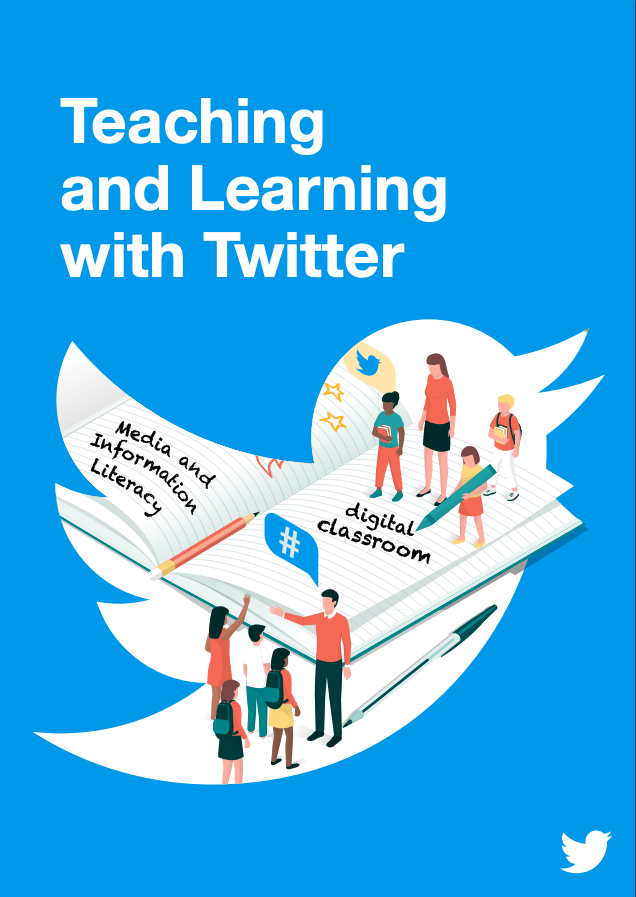Author: Kennedy O’Brien
Kennedy works as part of Twitter’s Public Policy team in Dublin. He manages Twitter’s partnership with UNESCO, driving the development and launch of the ‘Twitter for Teaching and Learning’ guide last year. Kennedy also developed the ‘Campaigning on Twitter’ handbook for civil society, public service, and politics.
When the first Tweet was sent in 2006, no one could have foreseen the impact that Twitter would have on the world. The distribution of news and information was changed almost immediately. It also opened a window into the everyday lives of people across the globe. The idea of having an open, public, and global conversation moved from an abstract notion to reality.
The open Internet has effectively put a user-friendly tap on the world’s reservoir of information. But with so much information available ‘on-demand’, how do we parse between what’s credible and what’s not? To have the capacity to consume, digest, and understand this information, we need to develop media literacy skills.
To be media literate is to benefit from the opportunities of the open Internet while guarding against harmful disinformation. It allows us to sort fact from opinion, to question the origins of the content we see, and to verify that the source is reliable. The saying “don’t believe everything you read” remains as true in the digital age as it did in the analog age, only today we have the means to verify, fact-check, and rebut instantly.
What is Twitter doing to tackle misinformation
Twitter is committed to enhancing the health of the public conversation on our service. Our goal is to make it easy to find credible and authoritative information on Twitter and to limit the spread of potentially harmful and misleading content. The open and real-time nature of Twitter is a powerful antidote to the spreading of all types of false information. Journalists, experts, and engaged citizens Tweet side-by-side correcting and challenging public discourse second by second. These vital interactions happen on Twitter every day, and we are working to ensure that we surface the highest quality and most relevant content and context first.
Partnerships
In Ireland, Twitter has been an active supporter of Media Literacy Ireland and the Be Media Smart campaign. Over the past two years, we have supported Be Media Smart through our Ads for Good programme, through which we have provided advertising credit to non-profit organisations involved in the campaign. In 2019, we were delighted to have Martina Chapman join us in Twitter Dublin on a #TwitterForGood Day to talk to a group of Irish NGOs about the success of Be Media Smart. We were also grateful for the opportunity to contribute at the annual Media Literacy Ireland conference last year, where we discussed a resource we co-authored with UNESCO, ‘Teaching and Learning with Twitter’.
At a global level, Twitter has been proud to partner with UNESCO on a variety of projects since 2018 including supporting and participating in the UNESCO Global Media and Information Literacy (MIL) Week. Together we developed a handbook, for educators of all stripes, that explores how to teach these skills in the digital age. We want to empower people who use our service to critically engage with the content they see.
“Teaching & Learning with Twitter” combines our respective expertise and aims to help educators impart critical information and skills to younger generations. The handbook covers topics such as Digital Citizenship, UNESCO’s 5 Laws of MIL, controlling your Digital Footprint, the Digital Staffroom, and includes learning activities for educators and development actors. There is also information on controlling your Twitter experience, as well as case studies that feature two Irish schools – Mercy Mounthawk, Tralee, and Gaelcoláiste Luimnigh, Limerick.
Improving policies and tools
We are continually looking to improve and develop our policies and our tools to enhance the health of the conversation on our service. Using a combination of search prompts, event pages, and curated moments Twitter prioritises and amplifies credible information and accounts. We have introduced new policies and tools that allow us to label misleading information around COVID-19, and synthetic or manipulated media. We have broadened our definitions of harm to address content that goes directly against guidance from authoritative sources of global and local public health information. We work with trusted partners including public health authorities and governments and continue to use and consult with information from those sources when reviewing content. Our improvements in tooling and investments in machine learning have seen a 50% drop in challenges to accounts for suspected breaches of our platform manipulation policy.
Our overarching mission at Twitter is to serve the public conversation. We will keep working to build tools, develop policies, and offer context so that people can find credible and authentic information on our platform.
